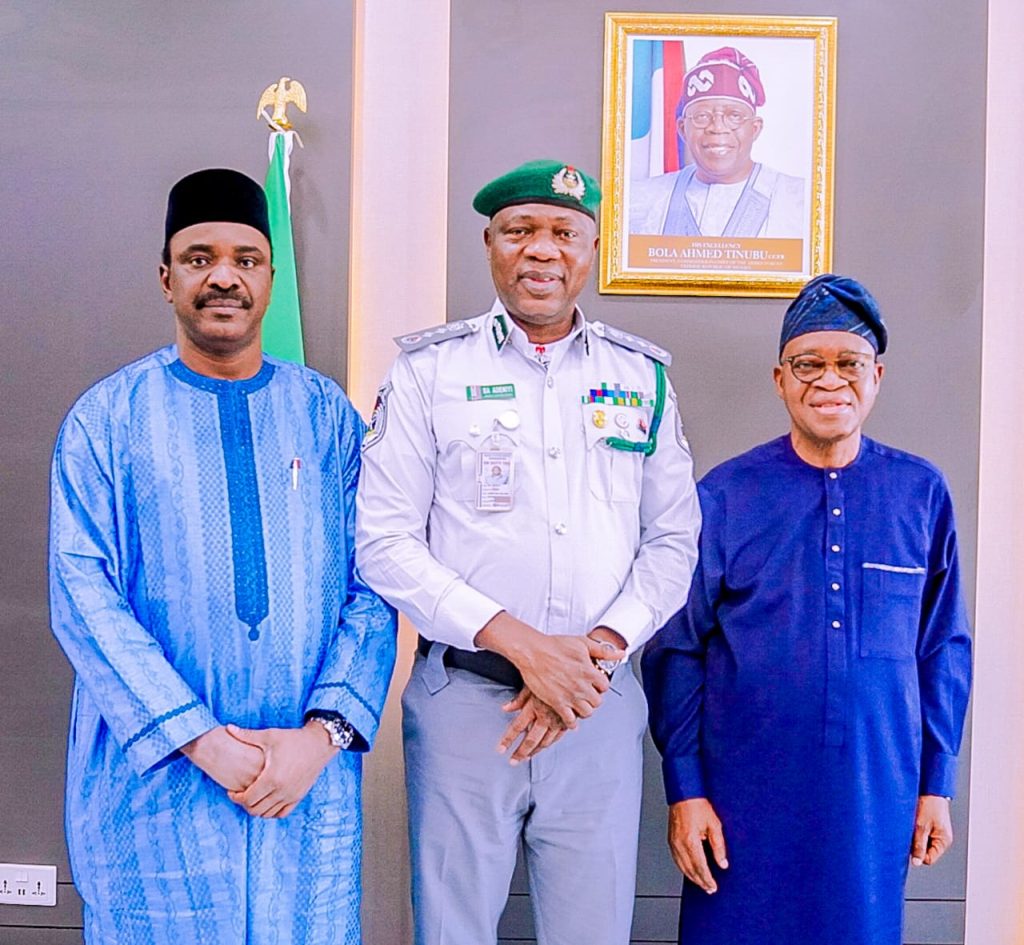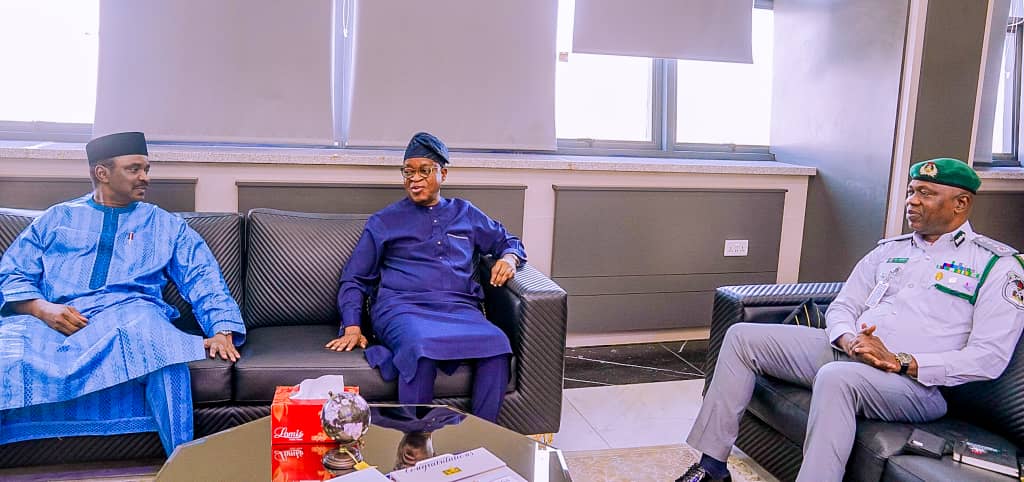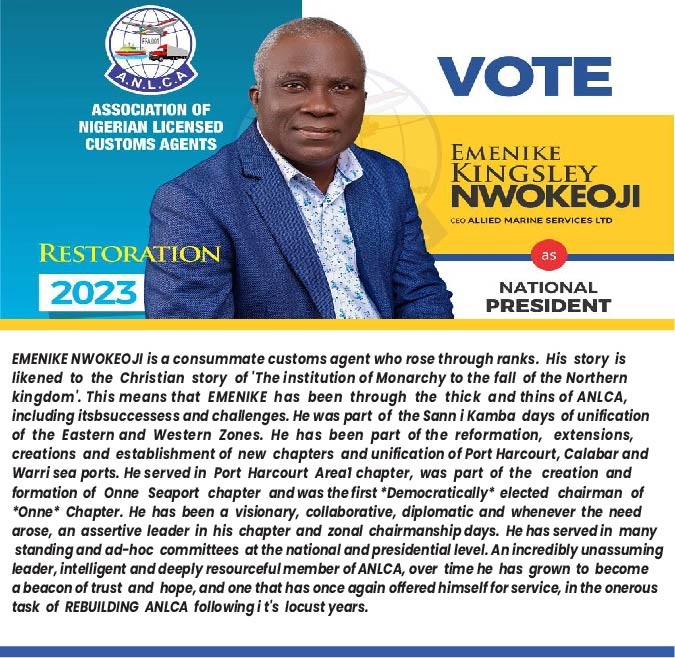Marine, Transportation Ministers, Customs CG Discuss Ports Decongestion
... Supports Full Implementation of Cargo Scanning
BY GBOGBOWA GBOWA

As part of efforts to ensure ports efficiency and competitiveness, the ministers of Marine and Blue Economy, Adegboyega Oyetola CON, his Transportation counterpart, Senator Said Ahmed Alkali and the Comptroller General of Customs (CG), Bashir Adewale Adeniyi MFR met on Monday and agreed that physical inspection of cargoes at the ports must be phased out.
They reasoned that the use of modern technologies like scanners was important in addressing the issues of ports congestion in the effort at achieving efficiency and competitiveness.
According to a statement by the spokesperson of the Marine and Blue Economy Ministry and Nigeria Customs Service, Mr. Ismail Omipidan and Chief Superintendent of Customs, Abdullahi Maiwada, respectively, the CG of Customs at the end of the meeting was enjoined to enforce the use of scanners at the ports, just as they encouraged private investors to come in and invest in the deployment and maintenance of scanners at the nation’s seaports.
The statement notes that the meeting held at the Ministry of Marine and Blue Economy which also had the Managing Director of Nigerian Railway Corporation (NRC), Engr. Fidet Okhiria in virtual attendance, also resolved to ensure a bypass of the fixed scanner at Apapa, so as to ensure the unhindered progression of scanning process during crucial infrastructure development.
Other key resolutions at the meeting includes the following:
- The pivotal role of NIIT in actively decongesting ports, the meeting entrusted the Comptroller General of Customs with the mandate to champion and prioritize cargo scanning over traditional physical examination methods.
- Repair and Utilization of Scanners: Immediate action to rectify and optimize all existing scanners at prominent ports such as Apapa, Tincan Island, Onne, and PTML. Simultaneously, the existing mobile scanners will be strategically deployed to facilitate expeditious cargo inspections.
- Rail Freight to Inland Containers Depot/Dry Ports: The Nigerian Railway Corporation (NRC) pledged continued commitment to freight cargoes to Inland container depots/dry ports, a strategic move to alleviate congestion at major ports. Plans were unveiled for the efficient evacuation of containers from Port Harcourt to Aba, with future extensions envisaged for Onne Port.
- Bypassing Fixed Scanner during Rail Track Construction: Against the backdrop of rail track construction, the NRC concurred on a pragmatic approach by agreeing to bypass the fixed scanner at Apapa. This ensures the unhindered progression of scanning process during crucial infrastructure development.
- Public-Private Partnerships for Scanning Installation and Maintenance: The meeting advocated for exploring Public-Private Partnerships to oversee the installation and maintenance of scanning technology. This collaborative model aims to sustain efficiency and foster innovation in cargo inspection processes.






